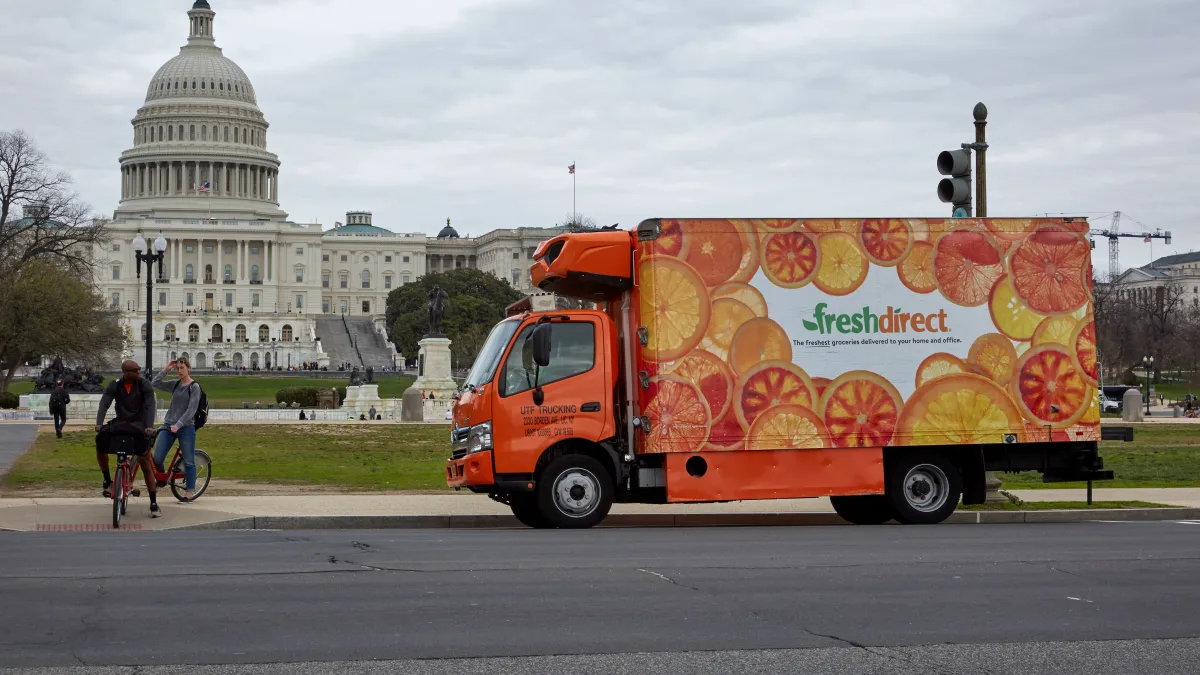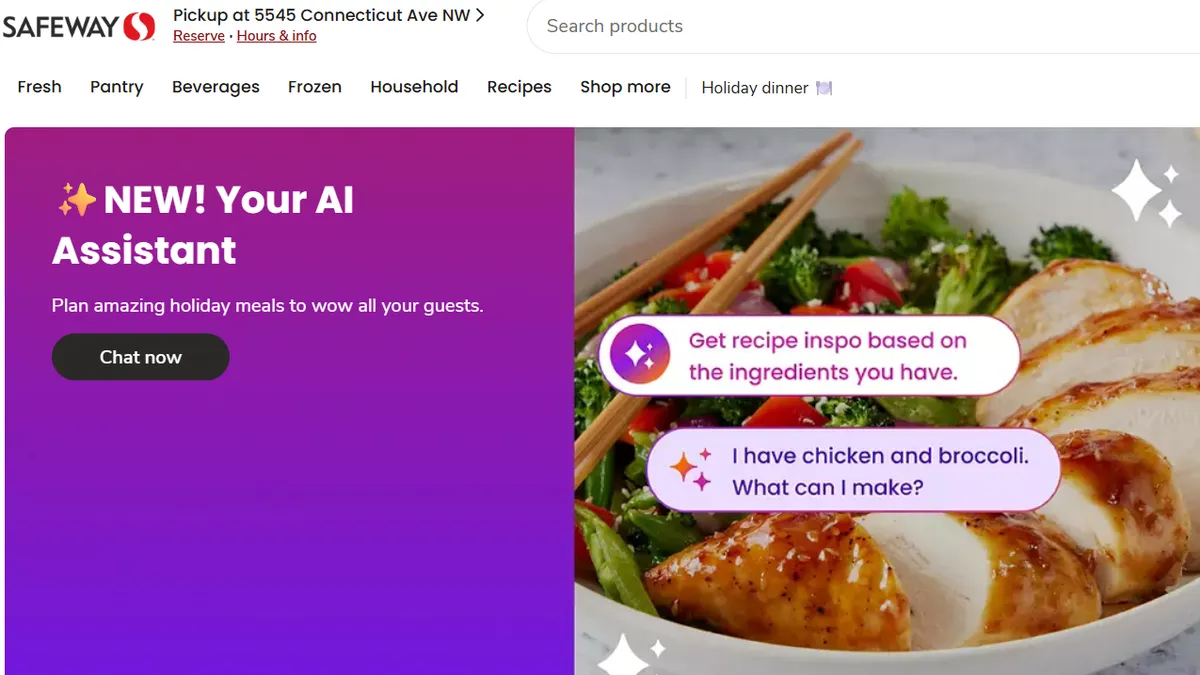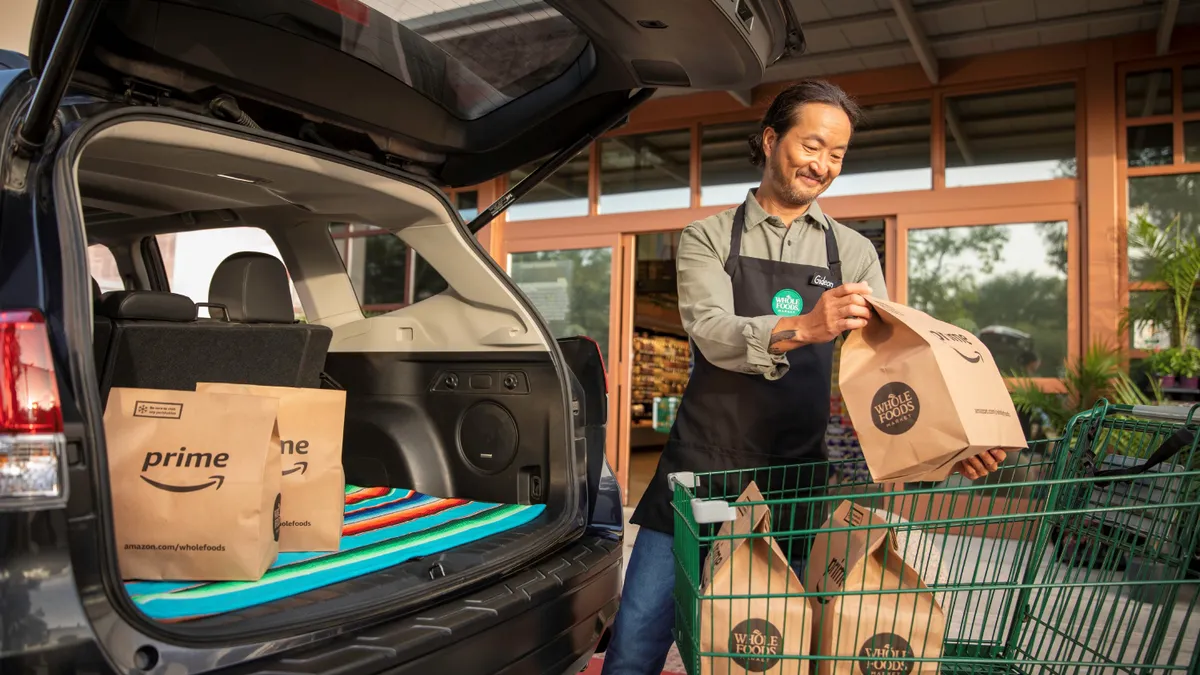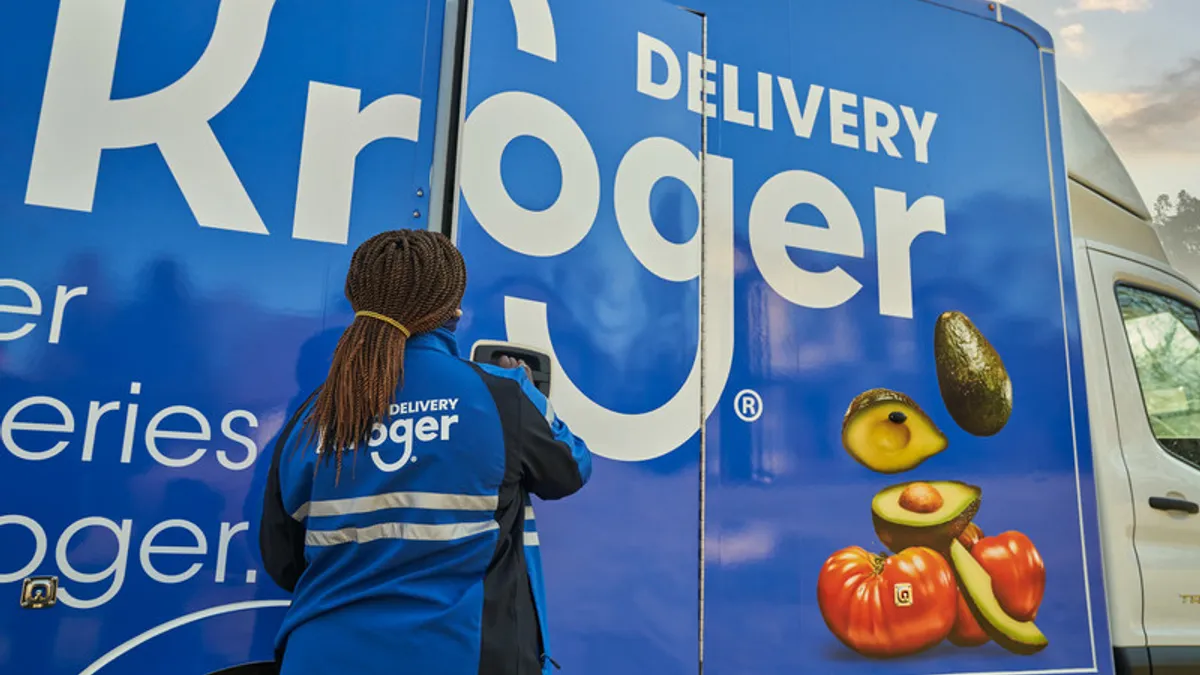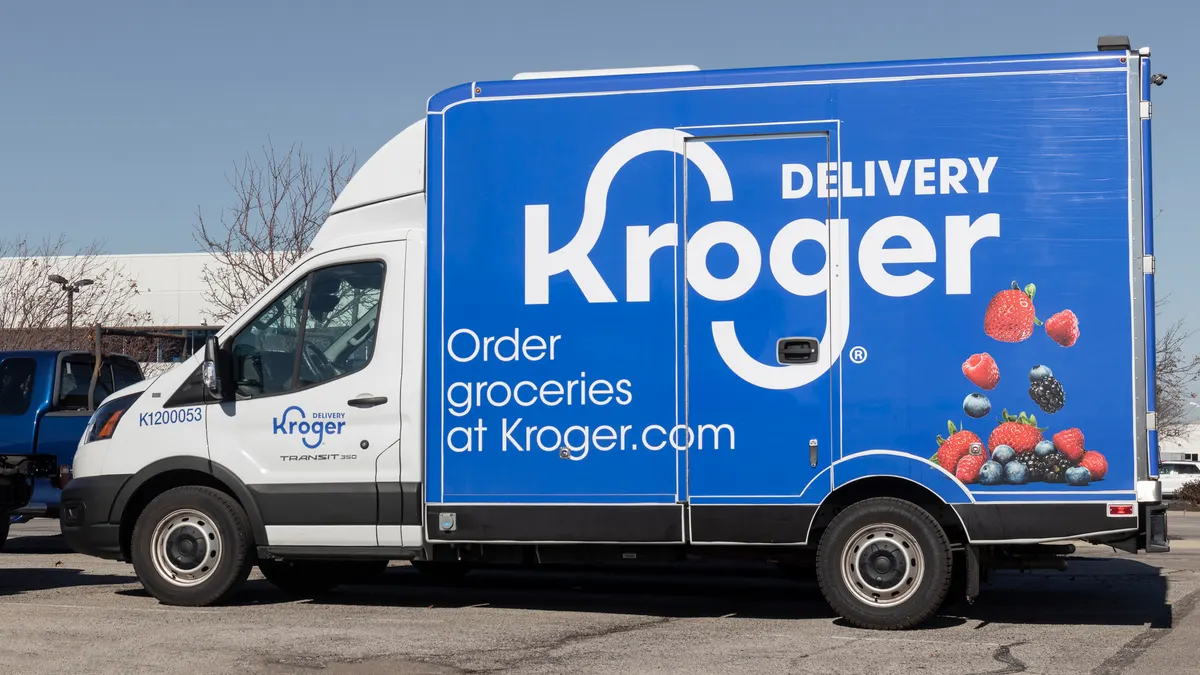FreshDirect has a need for speed.
The online grocer that became profitable on planned delivery orders has watched as competitors like Instacart, Peapod and Amazon have zoomed ahead with same-day and rush delivery across the East Coast, claiming millions of shoppers in the process.
Now, as it looks to ride a pandemic-fueled customer boom, FreshDirect wants to join the on-demand delivery race in the Mid-Atlantic and throughout the Northeast. It’s been operating same-day service in the New York City area since 2016, slowly expanding it to the five boroughs, counties upstate and parts of New Jersey and Long Island. Earlier this summer FreshDirect launched an "Express" service that offers two-hour delivery in Manhattan, Brooklyn and Queens.
In this year’s fourth quarter, the company will rev up two-hour delivery in the Washington, D.C.-area where it’s been operating since 2017. Powering the service will be a gleaming automated micro-fulfillment system that can speedily process up to 1,000 orders a day.
Tim Knoll, FreshDirect’s chief operating officer, said the e-grocer plans to expand same-day and Express delivery to other markets inside its coverage area, which also includes parts of Connecticut, Delaware, Philadelphia and several counties in New Jersey. He declined to provide a timeline or say where the company might go next.
The idea is to cast a wide net among the droves of shoppers that have started using online grocery during the pandemic and beyond.
“It really expands the buying group,” he said. “It's not just families trying to feed their kids that are buying online, and the evolution of our service with the on-demand business has let us meet more of the demands of the entire population versus a subset.”
But first, FreshDirect has to pry customers away from the grocers that specialize in speedy service, including all the major chains that utilizes third-party deliverers like Instacart, along with competitors like Amazon and Peapod that offer standalone service and also power delivery from brick-and-mortar grocers.
David Bishop, partner with consulting firm Brick Meets Click, said that whereas early in the pandemic customers shopped online wherever there was availability, with some Whole Foods customers defecting to Walmart, many have now latched onto providers and need more incentives to convince them to try someone new.
“In the early stages of COVID, it was all about availability and can I place an order online?” Bishop said. “Now, what we’re seeing is that as out-of-stocks continue to come down, albeit still at elevated levels, customers are now looking at all aspects of the experience, from the quality of the products to the completeness of the order to, how easy is it?”
Many shoppers also prefer pickup over home delivery during the pandemic — a trend that doesn’t play to delivery-focused FreshDirect's favor. According to Bishop, citing Brick Meets Click’s research from June, 54% of online grocery sales are through pickup compared to 46% through delivery. And less than 10% of consumers use both modes, which means FreshDirect is missing out on a large slice of shoppers.
FreshDirect offers pickup locations in places like New York City, Philadelphia and Washington, D.C., with more sites to come, but it isn’t a major operation for the grocer. Bishop said pickup services are a distinct advantage for brick-and-mortar retailers, where as many as 30% of shoppers like to go inside and make incremental purchases.
“That is also a challenge for pure play grocers because brick-and-mortar grocers have the proximity already to their customers,” he said.
In Washington, D.C., Bishop said FreshDirect will have to generate a lot of demand in order to justify the cost of operating the micro-fulfillment center, which is currently being built and will be operated by Fabric, as well as the economics of operating its own fleet. He said the company should be able to build out sales among its existing shopper base. Beyond that, it will have to spend heavily on advertising and promotions like free delivery on customers' first few orders.
FreshDirect’s sales in Washington, D.C., have grown steadily over the past three years and jumped notably during the pandemic. Sales during a week in early July were up 101% over the same period a year ago, according to Second Measure, which tracks purchasing data. But FreshDirect’s market share has steadily declined when compared to Instacart and Peapod, which seems to justify its decision to leap into same-day service in the city.
In New York City, FreshDirect has steadily expanded its same-day coverage area and, earlier this summer, rebranded its two-hour offering from the quirky FoodKick to the more mainstream FreshDirect Express title — reflecting a desire to create a scalable service and reach more than just the millennials it targeted when it launched in 2016.
The combination of planned and on-demand delivery has helped FreshDirect maintain its market share edge over Instacart, Second Measure data shows. However, during the pandemic Instacart, which contracts with individual grocers and was able to quickly ramp up its gig workforce, flipped the script as FreshDirect struggled to meet order demand.
Knoll said traffic to FreshDirect’s site was 900% above normal at the height of the COVID-19 panic as shoppers scrambled for a coveted delivery slot. The inability to fill hundreds of thousands of orders amounted to yet another knock for FreshDirect, which had trouble getting its large, automated fulfillment center in the Bronx off the ground in 2018.
The company has adjusted, however, and is ready to expand not just its same-day coverage but its overall coverage area as well, Knoll said. It has hired a few hundred workers over the past few months and is now able to fill most orders. It’s also begun reaching back out to customers it couldn’t service earlier.
According to Bishop, citing Brick Meets Click’s research from June, 54% of online grocery sales are through pickup compared to 46% through delivery. And less than 10% of consumers use both modes.

Knoll said FreshDirect wants to reach more suburban shoppers, which could mean its next stop for same-day delivery will be in the well-heeled communities of Connecticut or the neighborhoods just outside Philadelphia. He said the company is looking to take automated micro-fulfillment to other markets, where it could prove to be an advantage over competitors as online orders continue to break monthly records.
The main advantage Knoll, Bishop and others see in FreshDirect's online grocery push, however, is the same one the company has extolled for years — its focus on freshness and quality. The company grew up, after all, filling produce orders, slicing fish and whipping up prepared foods for choosy New York City customers. As more and more consumers shop for groceries online, FreshDirect is betting it can turn more than a few dabblers into long-term customers.
"I think our expertise goes a long way," said Knoll. "We've been doing it for a long time, and it's taken us a long time to figure out how to do it really well."


